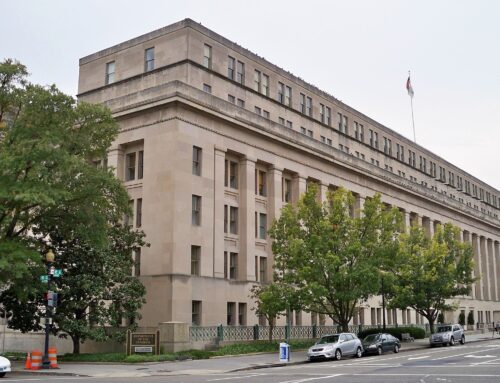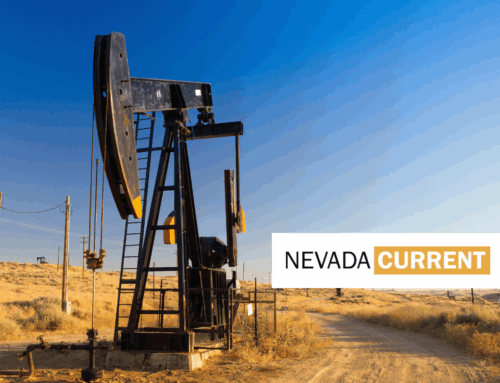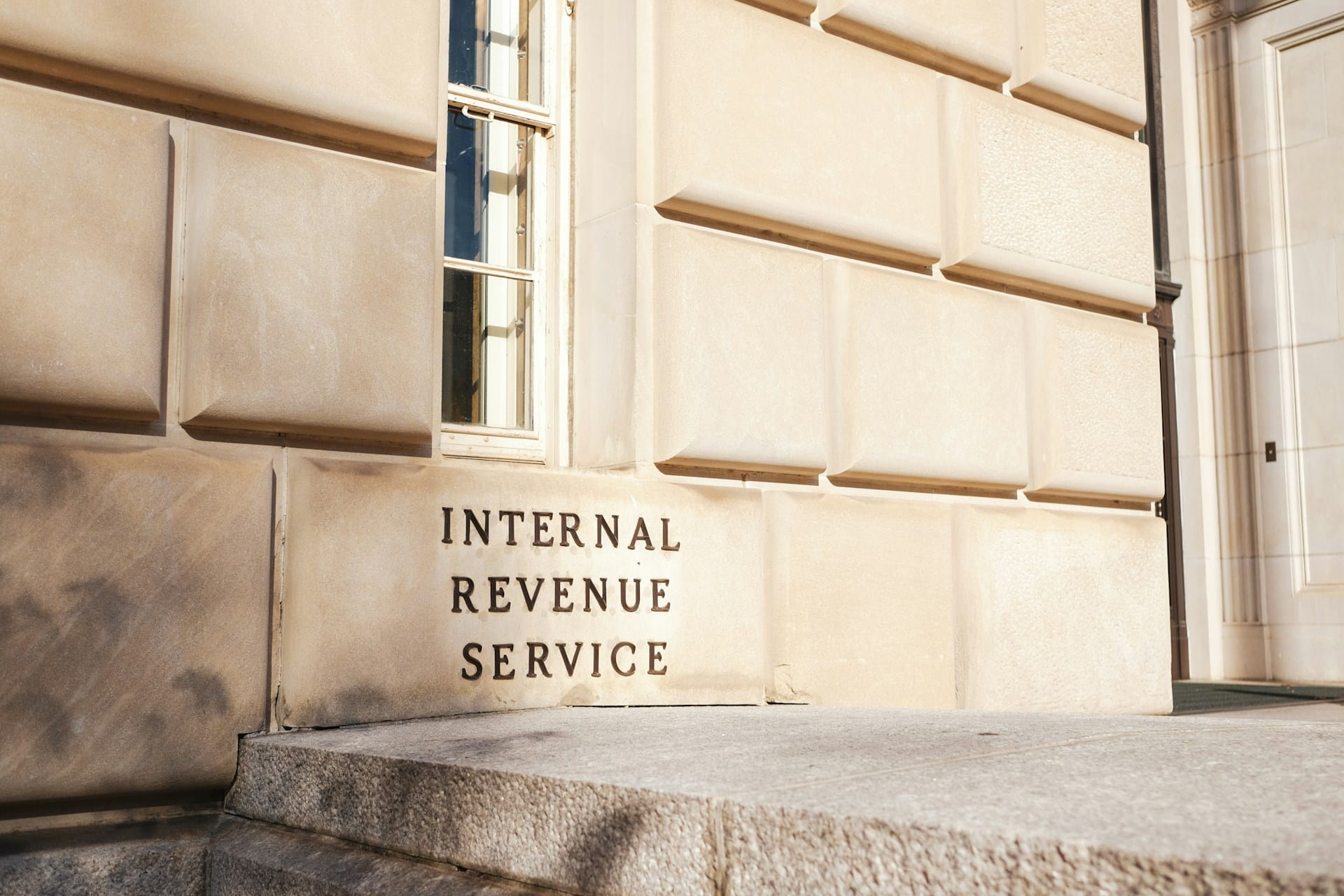This week we learn that a federal judge ruled against the Biden Administration, saying that it is up to Congress to pause new oil and gas lease sales on federal land. Plus, more than half a billion dollars in revenue is on the line for taxpayers when it comes to a major change in oil and gas royalty rates. TCS President Steve Ellis explores all the issues and their impacts on revenue to taxpayers with TCS Vice President Autumn Hanna.
Listen here or scroll down to read a transcript
Episode 9 — Transcript
[INTRO]
Steve Ellis:
Welcome to all-American taxpayers seeking common sense. You’ve made it to the right place. For over 25 years, TCS, that’s taxpayers for common sense has served as an independent, non-partisan, budget watchdog group based in Washington, DC. We believe in fiscal policy for America that is based on facts. We believe in transparency and accountability because no matter where you are on the political spectrum, no one wants to see their tax dollars wasted. Podcast listeners, it’s been almost four months since our inaugural Budget Watchdog All Federal podcast. In that episode, we talked about a Biden administration pause, an oil and gas leasing on federal lands. This week, we learned that a federal judge ruled against that approach saying that is up to Congress. Leaving aside legality, I know this was the right time to revisit the issues around revenue for taxpayers and catch everyone up on what’s been happening and what underlying problems still exist. There is no one better to help us unpack all of this than our inaugural podcast guest, illustrious TCS vice-president Autumn Hanna. Autumn, welcome back to budget watchdog AF.
Autumn Hanna:
Thanks Steve. It’s good to be back. And yes, a lot has happened since we last spoke about oil and gas leasing on federal lands. Bipartisan legislation has been introduced. The administration has laid out it’s intentions and started proposing changes to oil and gas fiscal policies. And even the courts have waited.
Steve Ellis:
Wow, that is a lot. Should we work backwards from these announcements and start with the ruling from this week on the leasing pause? Podcast listeners know that TCS supports postponing sales until we fix the many outdated policies and the leasing system run by the Department of Interior that costs taxpayers way too much.
Autumn Hanna:
Right? As you mentioned earlier this week, a federal judge in Louisiana issued a preliminary injunction to block the Biden administration’s pause on new oil and gas lease sales on federal land. And as we discussed in that first podcast, the administration postponed lease sales to undertake a review of the program and consider options for reform. This decision is concerning for us because lease sales could restart before any of these reforms get made. And once a lease is issued, the rates are set and this could lock in taxpayer losses.
Steve Ellis:
So we’ve had this pause and effect for a few months. I mean, what has happened during this pause? Has Department of Interior come up with any reforms or started moving forward?
Autumn Hanna:
Well, the process is ongoing. And the Department of Interior known as DOI, so I might say that sometimes, had an online forum and also took comments from the public through mid April. Our full comments are on the TCS website, but overall we took that opportunity to detail areas where we see the need for reform in the leasing process. We support reforms to get taxpayers competitive rates from the oil and gas we own. Things we’ve discussed before, like updating rates to inflation. Rates that haven’t been updated in decades. We can all agree that DOI is required to hold these lease sales. But with the stockpile of land already leased and not producing and a pause, which is supposed to be a postponement and not an abandonment of leasing. We think this pause was the fiscally smart decision. It made sense for taxpayers.
Steve Ellis:
So when will this review be made public? I mean, what indications are there on timing? What validity is there to industry concerns that taxpayers are going to be hurt if federal oil and gas doesn’t start moving again?
Autumn Hanna:
So this has been slower than a lot of folks would like. And notably critics of the process include both Republicans and Democrats. States like New Mexico and Montana, they count on this oil and gas revenue and they don’t like the uncertainty that the current situation creates. Look, in the short term, there isn’t a threat to revenue because leases take years to enter production. And most of the revenue comes from that production, not the lease sale itself. In reality, addressing the millions of acres already leased and not producing makes more sense than fast-tracking lease sales. But yes, if this drags on too long, then there could be revenue impacts. Remember this all started right out of the gate in January. We all know the new administration is making this a priority and it’s taking them time to get set up and moving. But it’s taking a little too long and now we’re all eager to get an update and see DOI’s review and report.
Steve Ellis:
Well, I can see why folks are eager Budget Watchdog AF listeners, let’s lean in and narrow down on this a bit more. Autumn Hanna, are we talking next week, next month, or the end of the year for this report? We all know how things without hard deadlines go in Washington. I mean, jeez, even with hard deadlines like funding government before the start of the fiscal year, fall by the wayside and the government gets shut down. What are we working with here?
Autumn Hanna:
Well, there’s good news here, Steve. Because as you said, the sooner we fix the problems and continue oil and gas leasing in a way that gets us that fair return and gets us those valuable resources to market, the better. So here is what we know. The Biden administration just released its first plan for the Department of Interior’s agency actions. It’s called the Unified Agenda. It includes updates to several rules that carry fiscal impacts. Taxpayers could save billions of dollars if these new rules get us reforms that we’ve been asking for.
Steve Ellis:
Ooh, Unified Agenda, sounds neat. All right. So what does this Unified Agenda say about oil and gas? Does this indicate what the review might tell us?
Autumn Hanna:
So in the released agenda, DOI says they will propose to quote, “Update the fees, rents, royalties, and bonding requirements related to development and production.” So this tells us that the pending review has convinced them of the need to make reforms. And it’s a good list to start with. It’s a list that reflects what we’ve been saying all along in a lot of these areas. So we hope that they can get moving and get some of our reforms instituted quickly.
Steve Ellis:
Got it. It’s just common sense. All right. Let’s move from leasing to breaking news this week about royalty revenues for taxpayers, if not the royalty rate itself. What happened this week and how much money might taxpayers reap from this change?
Autumn Hanna:
Late last week, DOI formally proposed to withdraw a rule that addresses how to value oil and gas produced from federal lands and waters. This rule is under the purview of the Office of Natural Resources Revenue at the Department of Interior and is generally known as the 2020 Valuation Rule. It was rushed through just five days before the Trump administration left office, leaving it ripe for review by the Biden administration.
Steve Ellis:
Five days before. Clearly this is well-thought-out, decision-making. Not.
Autumn Hanna:
Right. And although this is a new action, the rule has been worked on since 2011 at the Department of Interior. And this recent news is just a latest string of policy pivots back to 2016. The important takeaway for taxpayers now is the Trump-era rule would have cost taxpayers almost $650 million in lost royalty revenue over a decade. So real money, at least to most of us, pulling back on the 2020 rule like the Department of Interior proposed could mean recouping that revenue and setting more reasonable royalty collection standards. So we’re really excited at that prospect.
Steve Ellis:
Autumn, hold up a second. So I know the Valuation Rule is complex, but can you do a simple explanation of how and why we would lose revenue if we don’t drop the 2020 Rule?
Autumn Hanna:
Producers pay federal taxpayers royalties for the rights to extract valuable oil and gas resources from public lands and waters. How much producers pay depends on the royalty rate, which we talk about a lot because it hasn’t been updated in a century. For instance, states charge up to 25% for their royalty rate, but the feds charge only 12 1/2%. But in addition to this royalty rate, how you value that resource is extremely important for taxpayers. For example, the royalty rate for most oil and gas leases in the Gulf of Mexico is 18.75%. And if a producer sells one barrel of oil valued at $100, federal taxpayers get $18.75. But if that barrel is sold at $50, federal taxpayers only get $9.38. So half of that revenue. So there, you can see how setting the value of the oil and gas makes a big difference on revenue taxpayers received. So it’s extremely important that this is done right, fairly and transparently.
Steve Ellis:
Ooh, all right, I get it. So we should really call it the 2020 undervaluation rule.
Autumn Hanna:
Yes, and all of the details on how and when to value the resource matters, if and where you allowed deductions. And we really dig into that more in comments we provided to the Department of Interior. We’ll be digging in again too, as we are now in the 60 day comment period for this latest action. Of course, you can learn more on the rule and how it works on our website and recent posts. And in more detailed fact sheets we’ve done on valuation and royalties over the years.
Steve Ellis:
Yes, Budget Watchdog AF listeners. Taxpayers for Common Sense has excellent analysis and reporting on this important issue. Taxpayer.net, check it out.
Autumn Hanna:
We love to promote our work and expect lots more of it on the Valuation Rule this Summer and Fall when we submit our latest comments. This comment period on the Valuation Rule will end in August. And then, again, the administration will take its next steps this Fall. So stay tuned.
Steve Ellis:
Great. So moving along, another thing we’ve been hearing about is updated rules on wasted gas on federal lands. Gas that is vented, flared, or otherwise used royalty-free again, costing taxpayers. What’s this all about and what’s happening there.
Autumn Hanna:
So this one takes a winding path as well. Venting is the release of natural gas and the recovery of oil, and flaring is the burning of that gas. The Bureau of Land Management also under the Department of Interior, published a rule in 2016 to limit that venting and flaring of natural gas from federal leases, and clarify when operators will be charged a royalty on it. The Trump administration took aim at this role. But its attempts to replace it were thrown out in court, as was the underlying 2016 rule. So as a result, the rules governing gas wastes on federal lands, reverted to previous versions written in the 1970s, 1979 to be exact.
Steve Ellis:
Wait. So you’re telling me, this is being governed by rules put in place when disco raged and ironically Donna Summer’s Hot Stuff was at the top of the charts?
Autumn Hanna:
I don’t know how you know this stuff, Steve, but point taken. These outdated rules are not so hot. They lead to an enormous amount of waste for which the oil and gas operators don’t have to pay any royalty at all. They cost taxpayers millions of dollars every year, while enabling emissions that add to the climate change problem. DOI is proposing to issue a new rule, but unfortunately it looks like that won’t start until 2022.
Steve Ellis:
I’m sorry. I can’t help myself. One more Hot Stuff reference. The natural gas we are mostly talking about is methane, a far more potent climate change contributor than CO2. We’re watching and we’ll be planning on that again. And I promise no more Hot Stuff references this podcast.
Steve Ellis:
Well, that takes us to the end of our oil and gas updates.
Autumn Hanna:
Actually, Steve, I know that was a lot that we just covered, but I think it’s worth noting what’s going on in Congress too.
Steve Ellis:
Of course. We can’t forget about the other end of the Pennsylvania avenue at the Capitol.
Autumn Hanna:
So bills have been introduced on both sides of the Capitol. Senators Rosen and Grassley are working on the issue.
Steve Ellis:
So a Democrat from Nevada, and a Republican from Iowa.
Autumn Hanna:
Right, and they are raising important issues about the need to level the playing field and ending egregious outdated giveaways for oil and gas, while continuing to recognize it’s really important to our energy security to have responsible energy development on federal lands. They introduced a bill in March and it tackles the outdated, rental-minimum bid and royalty rates that we’ve been talking about. And just this week, the senators wrote to the interior secretary asking that the bill be included as a policy recommendation in the comprehensive review and citing our important research on taxpayer revenue.
Steve Ellis:
That’s the all-important, soon to be released review that we’ve already talked about, right?
Autumn Hanna:
Exactly. And here like a good infomercial, “But wait, there’s more.” Senator Manchin, Chair of the Energy and Natural Resources Committee, has also held a hearing on oil and gas reform. And raised some good questions about non-competitive leasing, another problem you all might remember. That issue is one DOI can’t fix on its own, and needs Congress to act. So we hope to see legislation to address non-competitive leasing soon.
Steve Ellis:
All right. So that’s the Senate side. What about over on the House side of the Capitol?
Autumn Hanna:
So glad you asked.
Steve Ellis:
You’d think we work together or something.
Autumn Hanna:
Only for 20 years. So Steve, in the House, the [inaudible 00:12:35] have reformed bills from bonding and royalty reform, to non-competitive leasing and methane waste have been through hearings and markups. Representative Porter, a California Democrat, has taken on the issue and her bill was voted out of the House Natural Resources Committee. So we hope it continues to move forward. And podcast listeners should know we have interest on the same issue on the Republican side of the aisle too. So we hope to see some real changes moving forward this summer.
Steve Ellis:
Well, thanks for all that info. Good to know, especially about any bipartisan action these days. That is a rare commodity. So there you have it. Taxpayers suddenly doing better than expected, at least for now in the federal oil and gas space. Thanks for listening to Budget Watchdog AF, subscribe and share. Taxpayers for Common Sense has your back America. We’re reading the bills, monitoring the earmarks, and highlighting those wasteful programs that poorly spent our money and shift long-term risk to taxpayers.
[END]










